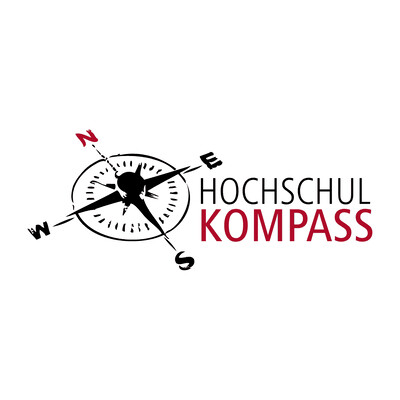Molecular Medicineinternational course, full time
Master of Science
Master
Degree2 semesters
Standard period of study (amount)
Tübingen
Location
expired (Germans and inhabitants)
expired (EU), expired (Non-EU)
Please enquire
Overview and admission
Study Type
graduate
Admission semester
Winter Semester only
Area of study
- Molecular Biology
- Human Medicine
Target group
Tübingens Masters programme is an excellent choice for students seeking an advanced academic and laboratory research training programme in modern cellular and molecular medicine with direct application to the study of human disease. A particular strength of the Faculty of Medicine at the University of Tübingen is our highly acclaimed applied research in the specialized areas of neurosciences, immunology, oncology, and infection biology. Training in these specialized areas is offered by experts who are predominantly active researchers or clinical scientists. As expert teachers they provide a comprehensive and thoroughly up-to-date overview of the area. Each student chooses two of the following four specialized areas: Immunology: Exploring the specialist field of immunology will allow you to gain a sound knowledge of the complex processes involved in the regulation of cellular and immunological processes in both humans and animals. The immunological processes are thus examined in association with disease-induced malfunctions, for example in the case of immunity defects or in tumour immunology. The lectures in the series Advanced Immunology cover the detailed mechanisms of the immune system, including an examination of the recent discoveries made in cellular and molecular immunology. The major topics comprise the evolution of immune systems, therapeutic antibodies, computational immunobiology, antigen processing, cellular communication, negative and positive regulatory mechanisms in immunity, interaction between immune systems, and pathogens and pathomechanisms. Oncology: Cancer is a frequently occurring complex disease with an increasing incidence and a high socio-economic impact. Both the lecture on Advanced Molecular Oncology and the other courses in this area are intended to provide further knowledge on the molecular basis of tumour development and molecular approaches to pathology and diagnostics, as well as molecular strategies in cancer therapy. Based on the topics to be addressed, students will acquire a solid understanding of the state-of-the-art of molecular and translational oncology with respect to: Molecular mechanisms of cancer development Molecular pathology and diagnostics Molecular strategies in cancer therapies Neurosciences The scope of neuroscience has expanded to include different approaches used to study the molecular, cellular, developmental, structural, functional, and computational aspects of the nervous system, as well as neurological disorders. The techniques used by scientists have also expanded enormously, from molecular and cellular studies of individual nerve cells to imaging of sensory and motor tasks in the brain. The main lecture series in this area places considerable emphasis on the molecular and cellular pathomechanisms of the most common dementias and other neurodegenerative disorders, especially Alzheimers and Parkinsons disease. Other dementias covered are the heterogenous group of Frontotemporal Dementias, and the Prion diseases, including Creutzfeldt-Jakob Disease. Additional movement disorders discussed in this lecture series include Huntingtons disease and various ataxias. Finally, Motor Neuron Diseases such as Amyotrophic Lateral Sclerosis will be presented and the recent link to the pathogenesis of Frontotemporal Dementia highlighted. Infection Biology Viral infections, the threat of pandemics, and the emergence of antibiotic resistance have made clear the enormity of the unmet medical needs in microbial pathogenesis. Most likely, there will be an increasing demand for knowledge about infectious diseases, in particular from developing areas of the world, where microbial infections are more prevalent and often have devastating consequences. In Tübingen special emphasis is currently being placed on issues such as the bacterial cell envelope, malaria, staphylococci, antibiotics, and viral and gastrointestinal infections. The Department of Medical Microbiology/Virology was formed to meet this need by harnessing the current explosion of new information about the basic biology of pathogens and host responses in order to develop novel therapeutics to combat serious infections. The programme consists of fundamental, translational and clinical research in the field of infectious diseases and comprises a number of central research themes. These include: Viral control of translation Trafficking of viral components Reverse transcription and integration Evolution and emergence of viruses Bacteria-phagocyte interaction In vivo infection models DNA sequencing techniques, protein expression systems Flow cytometry Malaria vaccines Drug resistance of Plasmodium falciparum Reverse genetics in Plasmodium falciparum Helminths and allergies
Admission requirements
Deviating application deadline already on 15 April
Lecture period
- 16.10.2023 - 10.02.2024
- 15.04.2024 - 27.07.2024
Application deadlines
Winter semester (2023/2024)
Application deadline for Germans and inhabitants
Expired
Please note different application deadlines for Master’s degree courses. You can find an overview here: https://uni-tuebingen.de/de/111543
Deadlines for International Students from the European Union
Expired
Please note different application deadlines for Master’s degree courses. You can find an overview here: https://uni-tuebingen.de/de/111543
Deadlines for international students from countries that are not members of the European Union
Expired
Please note different application deadlines for Master’s degree courses. You can find an overview here: https://uni-tuebingen.de/de/111543
Enrollment deadline for Germans and foreign students
Expired (Universitywide deadline)
Please note different application deadlines for Master’s degree courses. You can find an overview here: https://uni-tuebingen.de/de/111543
Tuition fee
Fees
All information about tuition fees for international students (EUR 1,500 per semester) and for a second degree course (EUR 650 per semester) can be found on our website.
Languages of instruction
Main language
German

